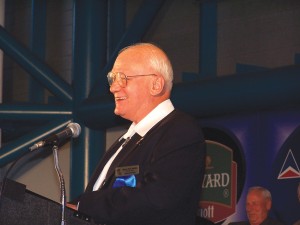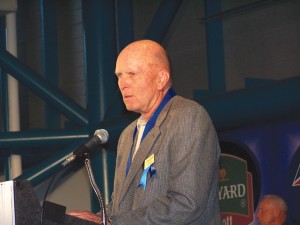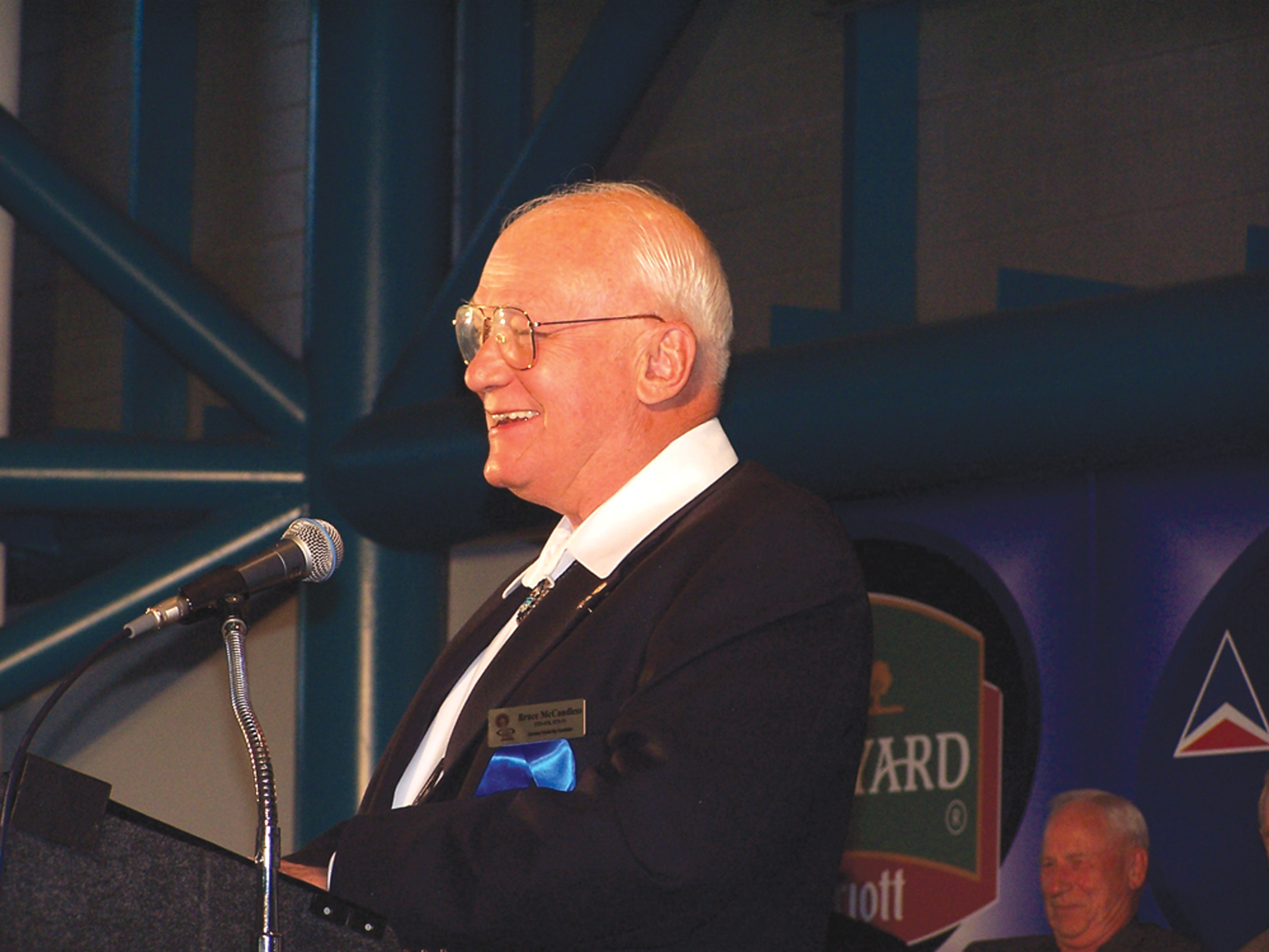By Bill Stansbeary

Capt. Bruce McCandless II (USN, ret.) made the first un-tethered free flight on each of the two MMUs carried on board Space Shuttle Challenger in February 1984, and also flew on Space Shuttle Discovery to deploy the Hubble Space Telescope in April 1990.
On April 30, the U.S. Astronaut Hall of Fame at the Kennedy Space Center inducted three more of the first brave flyers who journeyed into space. The newest enshrinees are Capt. Bruce McCandless (USN, ret.), Dr. Joe Allen and Col. Gordon Fullerton (USAF, ret.).
Bruce McCandless was the first person to fly freely in space. Floating a distance longer than a football field from the Space Shuttle Challenger during a 1984 mission, he controlled himself by firing small jets on the maiden flight of the Manned Maneuvering Unit. The success of the MMU led to a congratulatory phone call from President Ronald Reagan and cleared the way for future on-orbit repair missions. McCandless was also part of the five-person space shuttle crew that deployed the Hubble Space Telescope in 1990.
Dr. Allen put the backpack pioneered by McCandless to good use during the first space salvage mission in history. Allen, along with crewmate Dale Gardner, successfully retrieved the Westar VI and Palapa B2 communications satellites for return to earth. While in space orbit, Allen latched onto the satellite, moved it into position above the cargo bay, and then held aloft the 1,200-pound payload before manually lowering it into the space shuttle cargo bay. This earned him the “Mighty Joe” nickname.

Col. Gordon Fullerton (USAF, ret.) logged more than 380 hours in space and piloted the third space shuttle flight. He also skillfully diverted Challenger from mishap during a July 1985 flight.
Gordon Fullerton logged more than 380 hours in space and piloted the third space shuttle flight. He also skillfully diverted Challenger from mishap during a July 1985 flight. When one of the space shuttle’s main engines shut down five minutes after launching, Mission Control determined that Challenger could reach orbit by burning the two remaining engines 86 seconds longer. Fullerton expertly supervised the burning of the two working engines, thereby maneuvering the space shuttle into orbit.
Other U.S. Astronaut Hall of Fame astronauts that attended this event were Bill Anders, Vance Brand, Dan Brandenstein, Scott Carpenter, Richard Covey, Bob Crippen, Walt Cunningham, Charles Duke, Owen Garriott, Robert “Hoot” Gibson, Richard Gordon, Fred Haise, Rick Hauck, Jack Lousma, James Lovell, Edgar Mitchell, Bill Pogue, Al Worden and John Young.
Levar Burton of “Star Trek: The Next Generation” was the master of ceremonies during the induction.











